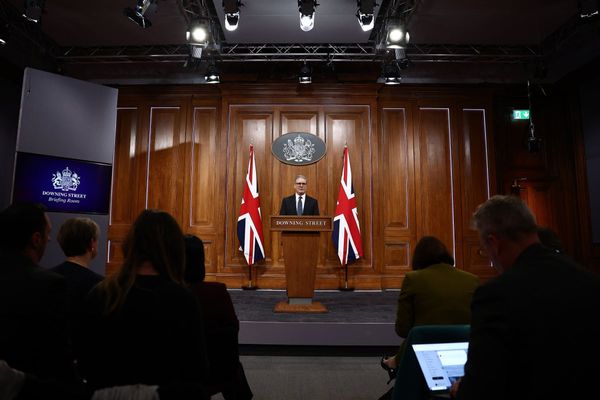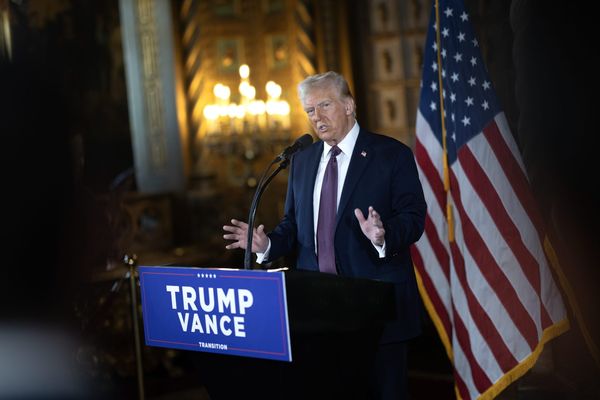
Greens Treasury spokesman Nick McKim has doubled down on his suggestion that Labor force the Reserve Bank to cut interest rates, saying those who don’t agree with him have had their minds consumed by “neoliberal brain worms”.
On Sunday, McKim said the Greens wouldn’t support the government’s overhaul of the Reserve Bank — including creating a specialist board that would decide monetary policy — until interest rates were cut. One way to do that, McKim said, would be for the government to become the first to ever use Section 11 of the Reserve Bank Act, allowing the treasurer to override the bank’s decisions.
The proposal was widely panned, including by Finance Minister Katy Gallagher, who called it “crazy”, “a bit unseemly”, and “out of control”. Guardian Australia economics correspondent Peter Hannam called it “Trumpist”, and two economists whom Crikey spoke to said overriding the Reserve Bank would be something that typically happens in authoritarian countries.
Crikey spoke to McKim on Wednesday morning, following the Reserve Bank’s decision the previous afternoon to leave the cash rate target unchanged at 4.35%.
It seems you’re pretty alone in thinking yours is a good idea, have you had any positive reactions?
“It depends on what you mean by alone, what I can tell you is that a lot of mortgage holders are really grateful. If you’re talking about classical neoliberal economists, well, no surprise they don’t like it,” the Tasmanian senator said.
“The classical neoliberal economists who don’t like what we’re proposing, in terms of the government of the day overriding the RBA, are the same people who are supporting an economic framework that is literally rendering the planet incapable of sustaining human life.
“So I don’t care what they think. I couldn’t care less what they think, they have no credibility at all on economics, because they are literally supporting an economic framework that is cooking the planet and resulting in ecosystem collapse. I mean, why would I listen to them?”
McKim said invoking Section 11 was just one of the ways the government could act to take pressure off mortgage holders.
“Jim Chalmers could freeze rents, he could put in place a wealth tax, he could make corporate price gouging illegal — he could do all of those things, but he’s not,” McKim said. “And then what happens is the RBA feels obliged to step in and use the one tool that it has, the extremely blunt tool of interest rate rises … it’s grossly unfair, and the people who fall through the gaps are the mortgage holders.”
Some of those proposals could probably get support, but the suggestion the government steer the Reserve Bank on interest rates in particular seems to have triggered a few people?
“I can’t help it if the neoliberal brain worms have consumed the minds of other people, that’s their problem, not mine,” McKim said.
Do you have any examples of people who aren’t neoliberal economists who do support this?
“It’s not my job to ring every economist in the country and ask whether they support it or not, that’s your job.”
University of Sydney School of Economics lecturer Dr Luke Hartigan told Crikey there was “no sound argument” for doing as the Greens suggest.
“[This happened] in the US, back in the 1970s, when Richard Nixon famously put pressure on the Fed chairman, Arthur Burns, to loosen monetary policy in the lead-up to the 1972 federal election,” he said. “More recently, it has typically happened in more authoritarian countries such as Türkiye and some Eastern European countries. It is also one reason why Argentina has suffered with low growth and rampant inflation for so long.”
UNSW Business School Professor of Economics Richard Holden said government intervention in interest rate decisions would “completely destroy the credibility and independence of the Reserve Bank”.
“[The Greens] know that the government will never do that, it would be the end of Labor’s economic management credentials for a generation. So I don’t think they want to negotiate anything with this, they just want to be able to grandstand,” he told Crikey.
“One of the great movements over the last 30-odd years in central banks around the world, in terms of advanced economies, has been to get the politics out of setting interest rates by making central banks independent. We’ve moved towards really entrenching [central bank] independence as being a critically important thing in a lot of democracies, and that credibility is hard to build up, but easy to unravel.”
As for the Reserve Bank reforms that the Greens have promised to block until interest rates come down, McKim said he doesn’t care whether they pass or not.
“The things that are important to us are that interest rates come down, and that section 11 and section 36 [of the Banking Act] are retained in the current form,” he said.
Section 36 “empowers the government to direct where commercial banks deploy funds generated during emergency quantitative easing”, and its retention is supported by Chalmers, according to ABC News.
So whether the RBA board makeup stays in its current form, or takes the form proposed by Labor, that makes no difference in itself?
“That’s not part of what what we have put to the government,” McKim said.
Labor needs the support of either the Greens or the Coalition to pass the reforms in the Senate. The Coalition initially supported the reforms, but then said it would block it due to worries the government could stack the rate-setting board.
Should the government have the power to override the RBA on interest rates? Let us know your thoughts by writing to letters@crikey.com.au. Please include your full name to be considered for publication. We reserve the right to edit for length and clarity.







